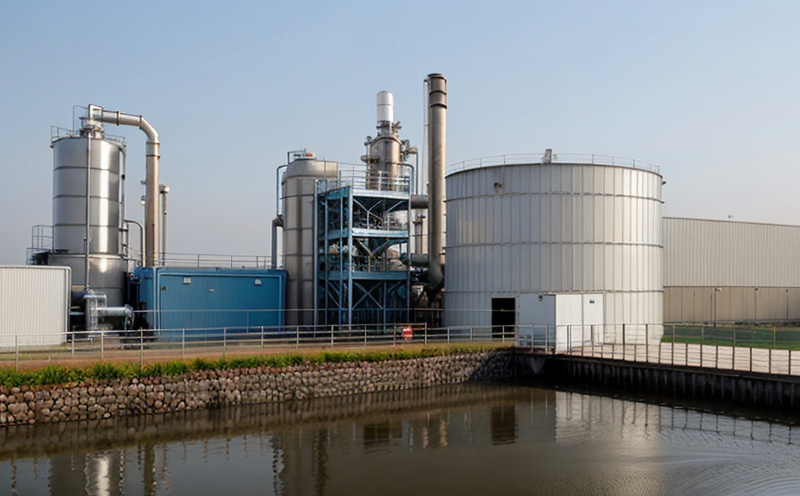ISO 8199 Enumeration of Microorganisms in Wastewater
The enumeration and analysis of microorganisms in wastewater is a critical aspect of industrial water management. The ISO 8199 standard provides methodologies for the quantitative assessment of viable microbial populations present in wastewater samples, which are essential for understanding environmental impact, process control, and compliance with regulatory requirements.
Microbial communities play significant roles in various industrial processes such as bioremediation, waste treatment, and biofilm formation. The enumeration of these microorganisms helps quality managers and R&D engineers to monitor the health of biological systems within their facilities. This ensures that operational efficiency is maintained while minimizing environmental impact.
The testing process involves several steps: sample collection, transport, preparation, inoculation into appropriate media, incubation under controlled conditions, and finally, enumeration using optical or automated counting methods. The choice of media and incubation time depends on the specific microorganisms being targeted, which can vary widely from bacteria to fungi.
Accurate enumeration of microorganisms is crucial for several reasons:
- To ensure compliance with local and international regulations such as ISO standards
- To maintain process stability in water treatment systems
- To monitor the effectiveness of biological treatment processes
- To identify potential sources of contamination or inefficiencies
Understanding these microbial communities can also help in optimizing industrial processes, leading to more sustainable and efficient operations. By adhering to ISO standards like ISO 8199, companies can ensure that their methodologies are robust and internationally recognized, which is increasingly important as global regulations tighten.
Applied Standards
| Standard | Description |
|---|---|
| ISO 8199:2016 | This standard provides guidelines for the quantitative enumeration of viable microorganisms in wastewater. It includes procedures for sampling, preparation, inoculation into selective media, and incubation conditions. |
| ASTM D7544-13 | An alternative American method that complements ISO 8199 by offering additional protocols for the enumeration of microorganisms in various water samples. |
The use of these internationally recognized standards ensures consistency and reliability across different laboratories and industries. The methodologies outlined in these documents are designed to provide accurate and reproducible results, which is essential for decision-making in industrial settings.
Quality and Reliability Assurance
The quality assurance process in enumerating microorganisms involves several key steps:
- Sampling: Proper sampling techniques are crucial to ensure that the sample accurately represents the wastewater being analyzed.
- Preparation: Samples must be prepared carefully to prevent contamination and degradation of viable cells.
- Inoculation: The inoculated samples need to be incubated under controlled conditions to allow for optimal growth of microorganisms.
- Enumeration: Accurate enumeration requires precise measurement techniques, often involving advanced analytical equipment such as flow cytometry or automated cell counters.
By adhering strictly to ISO 8199 and other relevant standards, laboratories can ensure that their results are reliable and can be trusted by compliance officers and quality managers. This not only enhances the credibility of the laboratory but also supports better decision-making in industrial processes.
Customer Impact and Satisfaction
- Improved Compliance: Accurate enumeration ensures that companies meet regulatory requirements set forth by local, national, and international bodies.
- Better Process Control: Understanding the microbial community in wastewater helps in optimizing treatment processes, leading to more efficient operations.
- Enhanced Environmental Impact: By identifying potential sources of contamination or inefficiencies early on, companies can take proactive measures to reduce environmental impact.
- Informed Decision-Making: Reliable data from ISO-compliant tests provide crucial insights for R&D engineers and quality managers.
The satisfaction of our customers is paramount. We pride ourselves on delivering accurate, reliable results that are not only compliant with international standards but also tailored to meet the specific needs of each customer. Our commitment to excellence ensures that we remain a trusted partner in the field of industrial water management.





